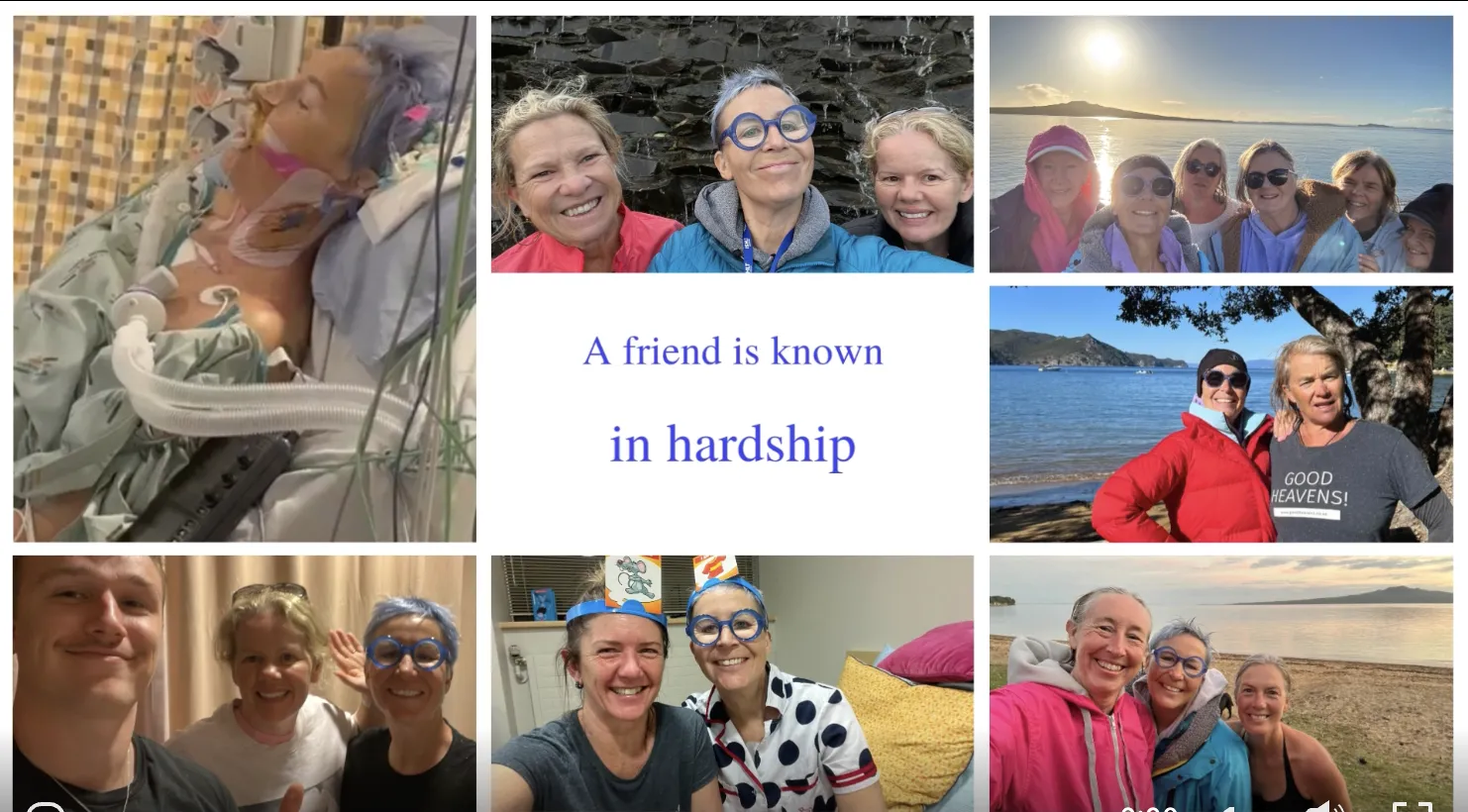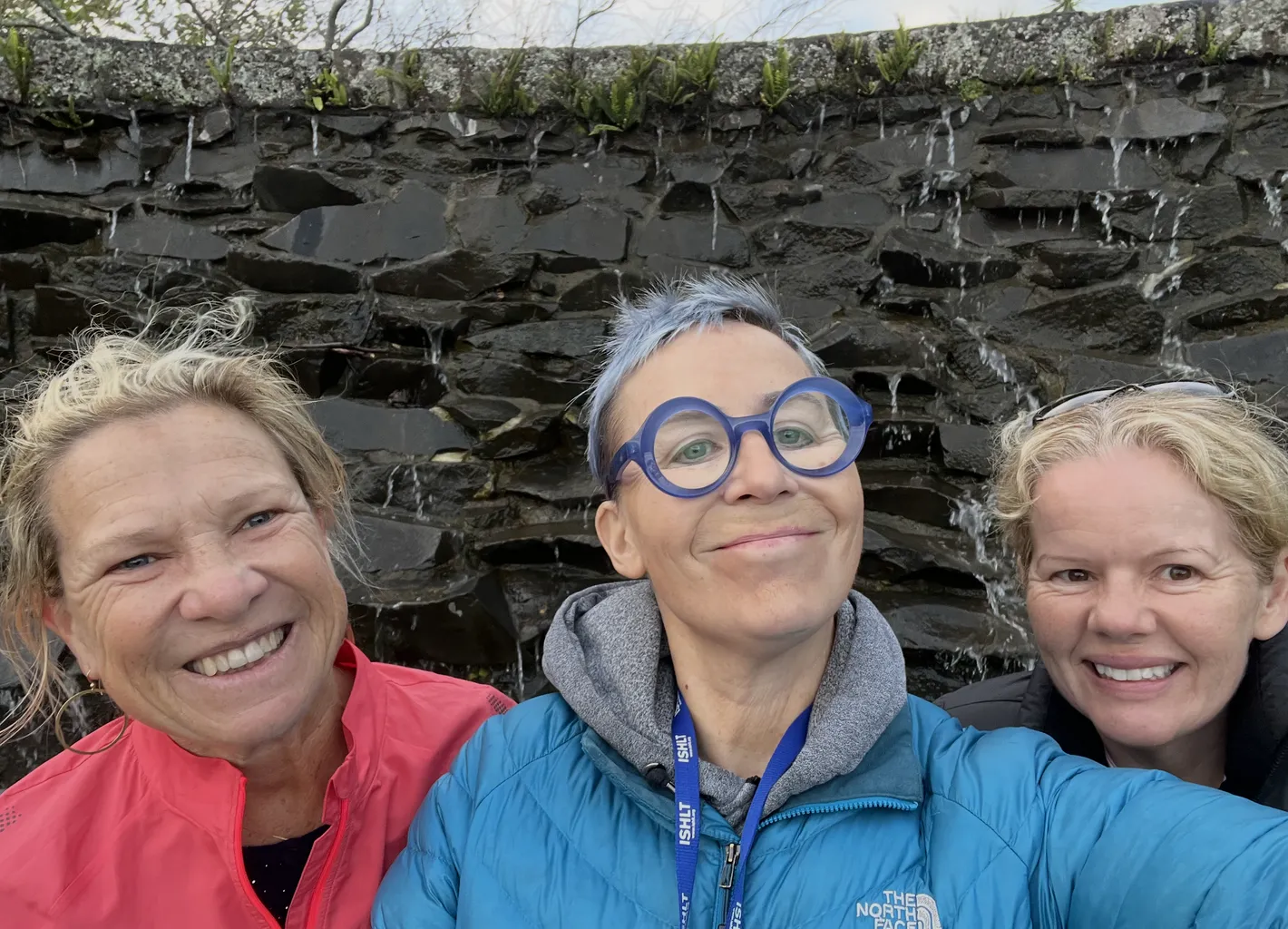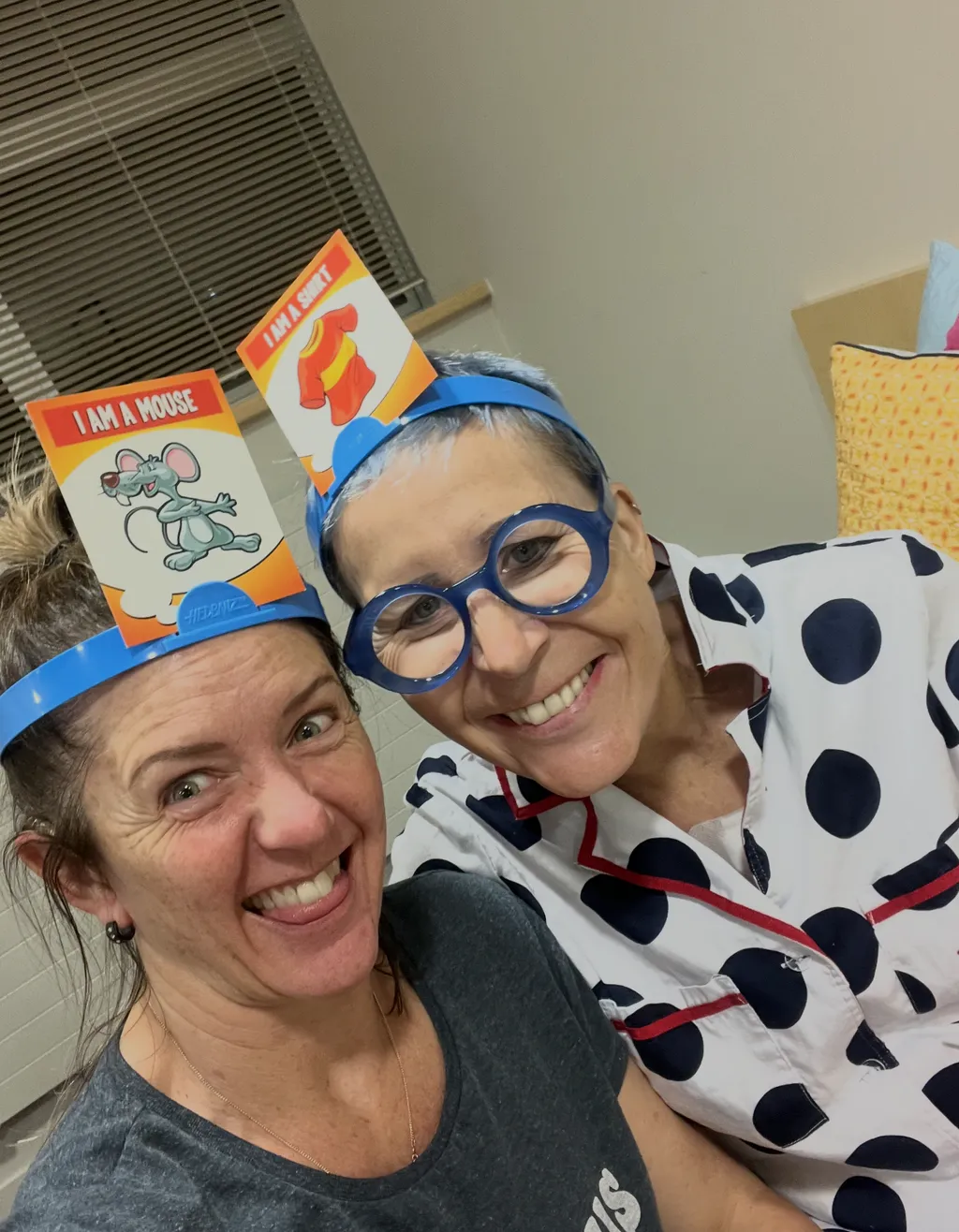

I’m alive today, literally, because of my friends.
I’m single, and when I hit end‑stage heart failure, the only way onto the transplant list was to name an actual support crew. Post‑transplant recovery is intense. You need people for exercise sessions, driving, meal trains, dog‑walking, laundry—the thousand tiny jobs that hold a life together. My girlfriends became the scaffolding that kept me upright. Without that, everything would have collapsed.
When Kenzie first got sick, some people I knew disappeared. Today we’d call it ghosting. It hurt. I felt dropped on the side of the road while the convoy roared past.
But here’s the other thing that happened: new people arrived. A woman I knew socially—not a close friend, but a friend—packed a bag and flew to New Zealand. She stayed three years, through Kenzie’s illness and then through Kenzie’s death and the aftermath. She helped me stand again. That is friendship in action.
My friends are wide and varied, with different strengths. There’s the couple who can fix and move anything. Not the ones to call for a weepy debrief—they’d sooner weld the tears shut—but if your garden needs clearing at 8 a.m., they’re already on the driveway, ute running.
And my doctor friend in palliative care—she’s the calm in heavy conversations. With her I can talk plainly about end‑of‑life care, grief, the big questions. Death is not a dirty word. Those chats are oddly reassuring; they pull fear’s teeth. We make a pot of tea, tell the truth, and the world seems brighter.
Different friends, different strengths. That has been true in every health or life crisis I’ve had. The doers, the listeners, the distractors, the steady hands. You don’t need one friend to be everything. You need a small orchestra.
It’s not about perfect words. It’s about turning up.
* “I’m outside with a coffee. Fancy a walk to the corner?”
* “Leave the washing by the door; I’ll take it.”
* “I’m grabbing groceries—text me your list.”
* “I’ve got the kids for two hours. Go nap.”
* “I’m driving you to physio. No arguments.”
None of that solves cancer, grief, Parkinson’s, or transplant recovery. It solves today. It lightens the hour in front of you so you can make it to the next one.
Skip the platitudes—“everything happens for a reason,” “at least…”—unless you’re keen to lob a grenade under a friendship. Don’t try to fix someone with unasked‑for protocols, diets, or miracle supplements. Know your person. Bring your strength, not your lecture.
They move furniture, cook meals, wrangle dogs, build rosters, and say, “I’m here at 6.” My friends—the twins—live in this lane. When the wheels fall off, they arrive with a jack.
They sit at the kitchen table and let you talk until the storm clears. Sometimes they ask the gentle question you needed. Sometimes they just breathe with you.
They show up with trashy magazines, bad jokes, or a ridiculous meme at 11 p.m. They remind your body how to laugh.
They translate the system—medical jargon, forms, appointments. They come to consults and say, “Hang on—answer that again.” (Anne, this is you.)
They text, “Checking in,” every Tuesday for a year. They don’t overcomplicate it. They’re simply there.
Every one of those roles kept me alive. Each felt small to the giver and massive to me.
When I first got ghosted, it felt like betrayal. Later, I learned to loosen my grip. People disappear for reasons that aren’t always personal: fear, overload, not knowing how to stand near pain. You’re allowed to feel hurt. You’re also allowed to let it go.
The ledger isn’t only losses. In crisis, unexpected people walk through the door. The neighbour with a spare lasagne. The friend‑of‑a‑friend who becomes family. The colleague you only waved at, who somehow knows exactly how to run a meal train. Focus there. Water what grows.
Hospitals don’t muck around. To get on my heart‑transplant list, I needed a declared support crew. No fantasy helpers—real names, real numbers. Recovery isn’t theoretical: it’s early‑morning appointments you can’t drive yourself to, medication schedules you’re too spaced‑out to manage, floors that won’t mop themselves, dogs that need a lap to sigh on.
My friends put their hands up. They stood in fluorescent corridors and said, “We’ve got her.” That’s not poetry; it’s logistics. It’s also love.
* “I’m thinking of you. Want company or quiet today?”
* “Choose A or B: I can bring dinner Thursday or do school pickup Friday.”
* “I’m heading to the chemist—need anything?”
* “I don’t know what to say, but I’m here.”
* Put dates in your calendar and follow through.
* Offer specific help, not “Let me know if you need anything.”
* Match your help to your strengths—cook, drive, organise, or entertain.
* Keep checking in after the first wave passes.
* Platitudes and silver‑linings gymnastics.
* Unsolicited cures or moralising about diet/exercise/supplements.
* Making it about you (“I know exactly how you feel”).
* Promising and then disappearing.
Be honest and kind: “I’m at capacity and can’t be close right now, but I care about you.” Clarity hurts less than silence.
Crisis ends; the body count of chores doesn’t. Friendship isn’t a one‑off casserole. It’s long, ordinary faithfulness: texts that keep landing, cups of tea that keep pouring, laughter that keeps sneaking back in.
I’ve learned to notice the small mercies: a folded towel stack, a dog returned mud‑free, someone replacing the loo roll (a saint’s work). I’ve learned to ask—and to receive without apologising. Pride doesn’t push the pram uphill; people do.
Here’s your permission slip:
* Ask specifically. “Can you drive me Wednesday at 9?” is easier to answer than “Help?”
* Build a roster. Let people claim a slot; they like knowing what’s needed.
* Let different people do different things. Don’t expect deep comfort from the twins. Don’t expect the poet to fix your fence.
* Release the no‑shows. You’ll make room for the ones coming up the path.
Friendship isn’t a speech. It’s a meal, a lift, a load of washing, a dog on a lead, a chair pulled close to a bed.
Because I wouldn’t be here without my friends. Because if you’re reading this in your own hard season, there are ways through. Not neat ways. Not Instagrammable ways. Real ones.
And because if you’re a friend wondering what to do, here’s the answer: turn up. Bring your sturdy, imperfect self. Say less, do more. Hold a hand. Hold a roster. Hold the line.
A friend is known in hardship. I have seen it. I am alive because of it.
* Put two names in your phone under “non‑negotiables” and tell them they’re your crisis people.
* If someone you love is hurting, send one text today and put one practical task in your calendar.
* If you’re hurting, write a list of five tasks others can do. When they ask, hand it over.
* Forgive the vanishers. Invest in the arriver

